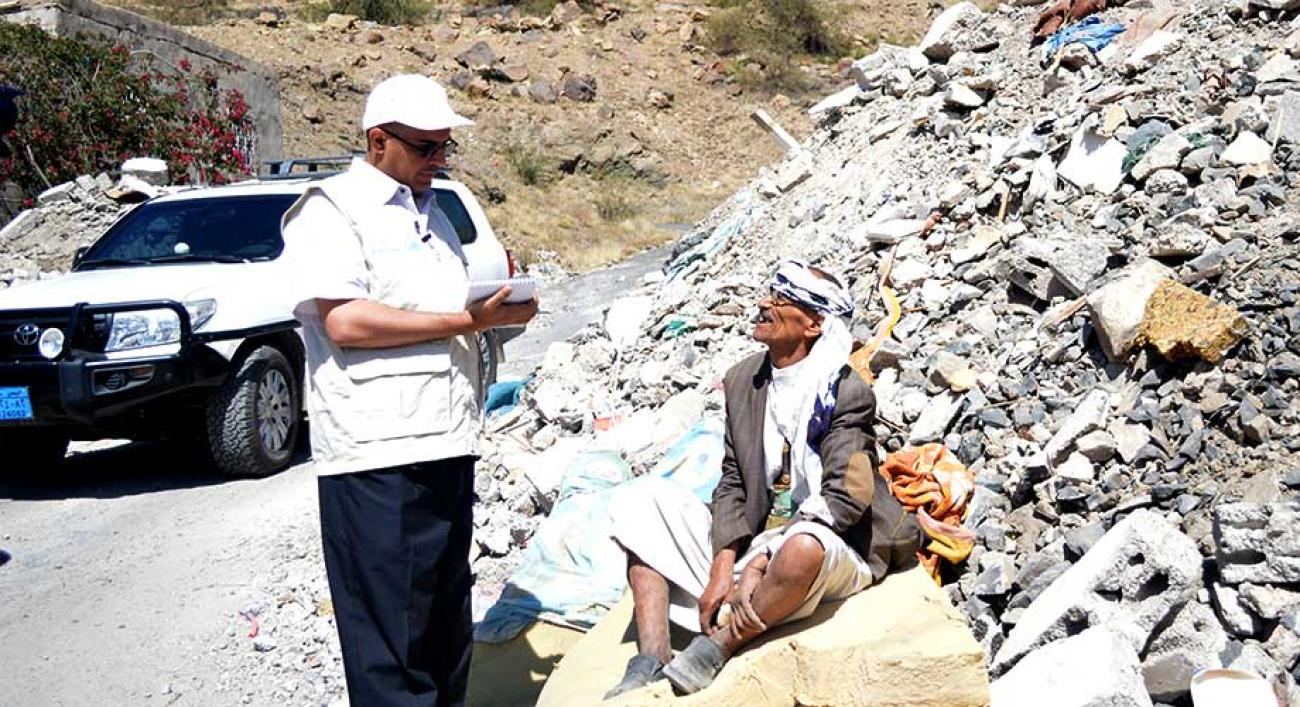On 25 August 2017 just after midnight, bombs had dropped on the buildings, killing 30 people, injuring scores of others, destroying the buildings, including his family apartment. And to this day, Mosleh still does not understand why.
"There was no military here. We are just people. Why were we targeted? To this day, no one has told us why," he said.
Near him, Hisham Ali Mekhlafi and Aidi Al Monify listened, asked more questions and took notes. As UN Human Rights Office monitors in Yemen, it was part of their job to observe and gather information on such incidents.
"OHCHR monitors did not find any military objects in this area," Ali Mekhlafi said. "But all the casualties were civilian, and they are protected under international law. Therefore this attack was targeting civilians."
Since March 2015 more than 8,000 people have died and 49,000 injured in fighting between forces loyal to the internationally recognised government of President Abdrabbuh Mansour Hadi and those allied with the Houthi movement and the army units loyal to the former President Ali Abdullah Saleh.
Since 2012, it has been the job of UN Human Rights Office monitors to go into places where human rights violations may have taken place and to document civilian casualties. They go to hospitals to speak to the injured. They interview eye witnesses and even count dead bodies at the scene. Using this information they help piece together the events that took place and who was responsible for the actions. These become part of monthly reports and a database of information available for use by other UN agencies and international agencies.
The work of staff like Mekhlafi and Al Monify has been crucial in documenting and reporting on the conflict in Yemen, said Mohammad Ali Alnsour, chief of the Middle East and North Africa (MENA) branch of the UN Human Rights Office.
"Our national monitors are the backbone of our work in the field and in a conflict area, like Yemen. They travel using simple tools – using mobile phones, visiting hospitals, schools and sites of air strikes. They play a crucial role and are the main engine of our work in Yemen."
Learn more about the work of human rights monitors in Yemen in this video.


